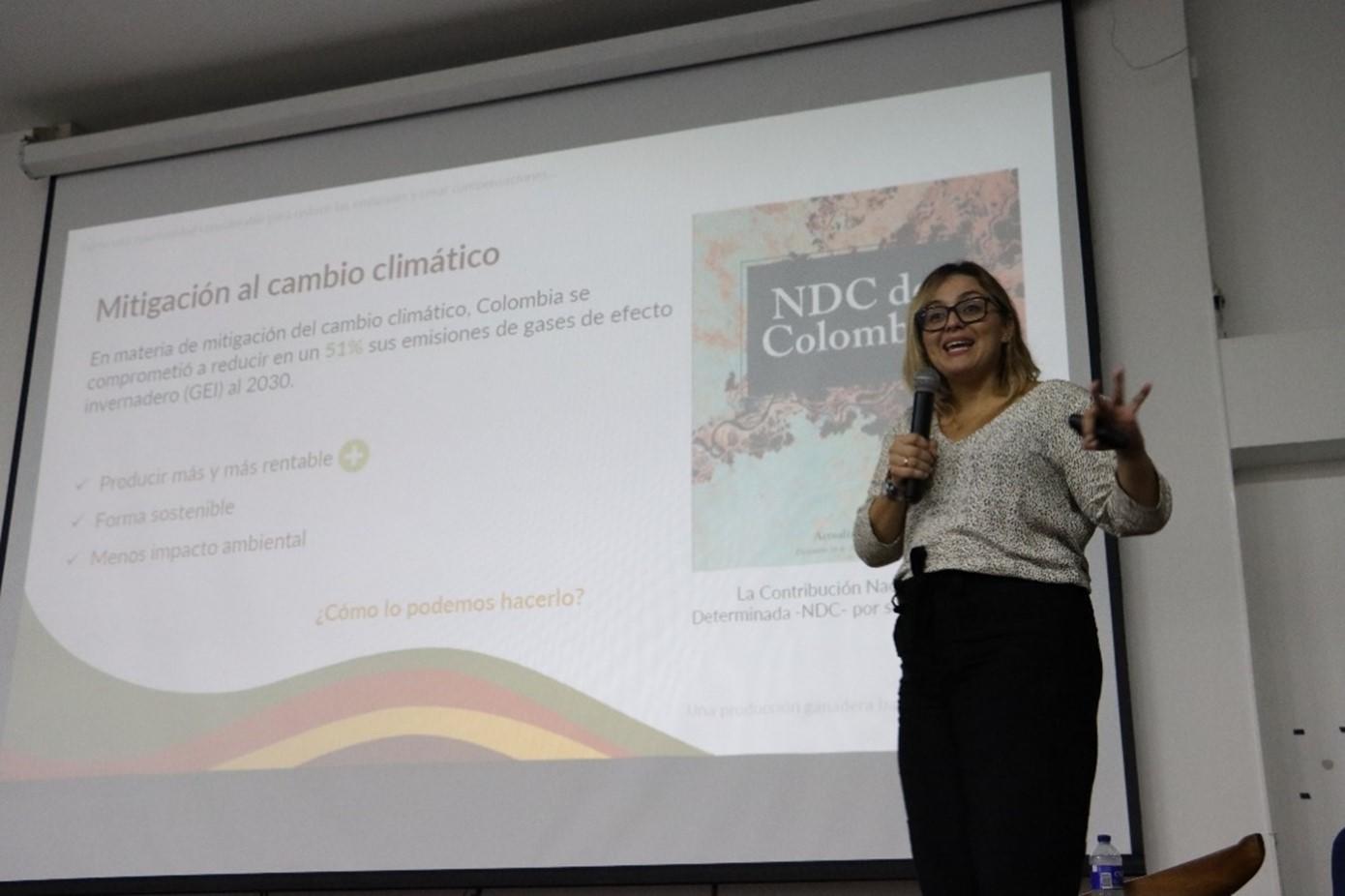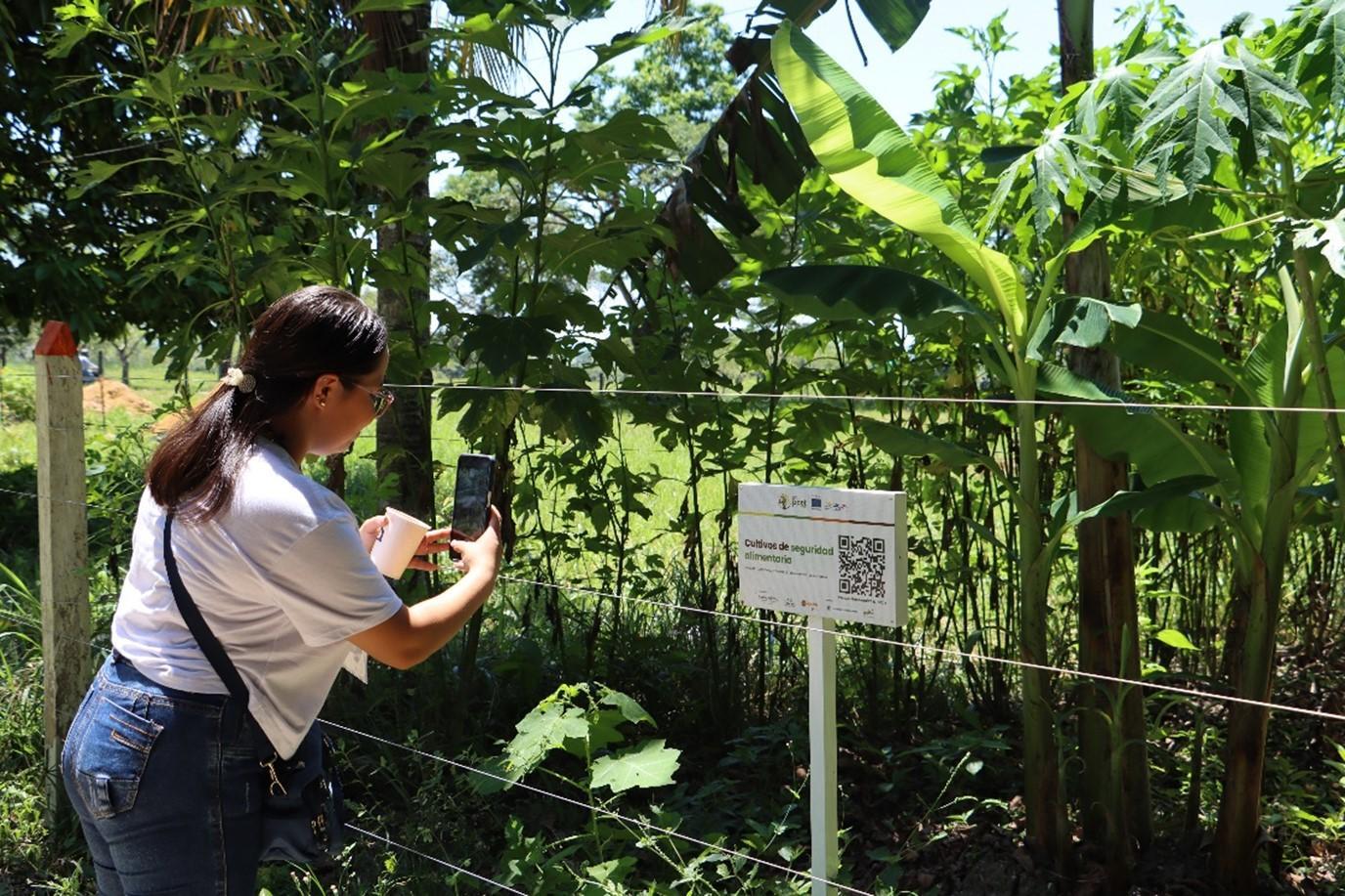Blog Sustainability contributions to the first Seminar of the Dairy Chain in Caquetá

The department of Caquetá witnessed a significant event for the region's dairy industry with the 1st Dairy Chain Seminar. Organized by the PDET Routes Program and financed by the European Fund for Peace, this seminar was attended by close to 220 key players in the Caquetá dairy production chain, marking a milestone in the strengthening of this sector in the area.
The event, which took place from October 5 to 7 in Florencia (capital of Caquetá), brought together producers, livestock farmers, processors, distributors and authorities of the department, as well as experts from the dairy value chain at the national level. The main objective of this meeting was to foster collaboration and knowledge exchange between the different links in the production chain, materializing them in a "declaration of wills" in order to define strategies that stimulate the competitiveness and sustainability of the dairy industry and address some limitations in the chain.

First day agenda
A distinctive factor that contributed to the success of this seminar was the participation and collaboration of various strategic allies. These included the Departmental Committee of Cattle Raisers, SENA, the Universidad de la Amazonia, Agrosavia, the Ministry of Agriculture and Rural Development (MADR), the United States Agency for International Development (USAID) and the German Cooperation (GIZ), who during the morning of the first day of the seminar provided talks that contextualized the dairy chain at both the national and regional levels, addressing relevant figures, progress, achievements and challenges,
During the seminar, a series of keynote lectures were presented, grouped under the thematic axis of "Sustainable Production". These presentations addressed key topics closely related to sustainability, which includes the need to increase milk production without compromising the environment; regenerative livestock farming, which promotes agricultural practices that restore and revitalize ecosystems; silvopastoral systems, which include the use of forage alternatives; and climate change. The sustainable livestock technologies being implemented by the Bioversity-CIAT Alliance in compliance with the execution of the technological innovation component for the implementation of good agricultural practices within the framework of the PDET Routes Program to help producers face the climatic, environmental and productive challenges of the region were also presented.
Alejandra Marín, coordinator of the Innovation Component of the Rutas PDET Program was present at the seminar with a presentation that leaves a key message to producers: "Feeding cattle with improved pastures and forages throughout their life cycle is the most sustainable way to produce animal protein and is a great opportunity to significantly reduce emissions and create offsets."
Alejandra Marín, coordinator of the Innovation Component of the Rutas PDET Program was present at the seminar with a presentation that leaves a key message to producers: "Feeding cattle with improved pastures and forages throughout their life cycle is the most sustainable way to produce animal-based proteins and is a great opportunity to significantly reduce emissions and create offsets.

Alejandra Marín, coordinator of the Innovation Component of the PDET Routes Program in her presentation on Livestock, Sustainability and Climate Change. Photo credit: A Yedra/CIAT.
The culmination of the seminar was celebrated in a special way on the third day with a visit to the "Villa María" farm, located in the municipality of El Paujil, where seminar participants were able to tour its 32 hectares and observe first-hand how producers implement sustainable livestock technologies and the social, environmental and productive benefits that they bring to the dairy chain.

The demonstration farms have QR codes that, when scanned, expand the information on the technology on display. Photo: A Yedra/CIAT
The selection of this farm to host the visit of the producers was not by chance, since it is not only part of the 370 cattle farms benefited by the PDET Routes Program, but also stands out as one of the seven demonstration farms of the project that has installed the five technological packages (water harvesting and livestock aqueduct, implementation of pastures, renovation of pastures, division of paddocks with tree strips and mixed fodder bank with food security). This farm, like the other six demonstration farms, was chosen mainly because of the interest, good will and leadership of the owners: Mrs. Francy and Mr. Omar; which makes it an ideal place for those interested in implementing these improvements can approach and observe its operation.
"This practical approach is based on the idea that one of the most effective ways to disseminate technologies among producers is through on-site demonstration, making "Villa María" a concrete example of how to apply these technological advances in the dairy sector in the region." Concludes Juan Gabriel Ortiz, territorial technician of the livestock component of the PDET Routes Program.

Doña Francy welcoming the participants of the Seminar at her farm "Villa María". Photo: A Yedra/CIAT
